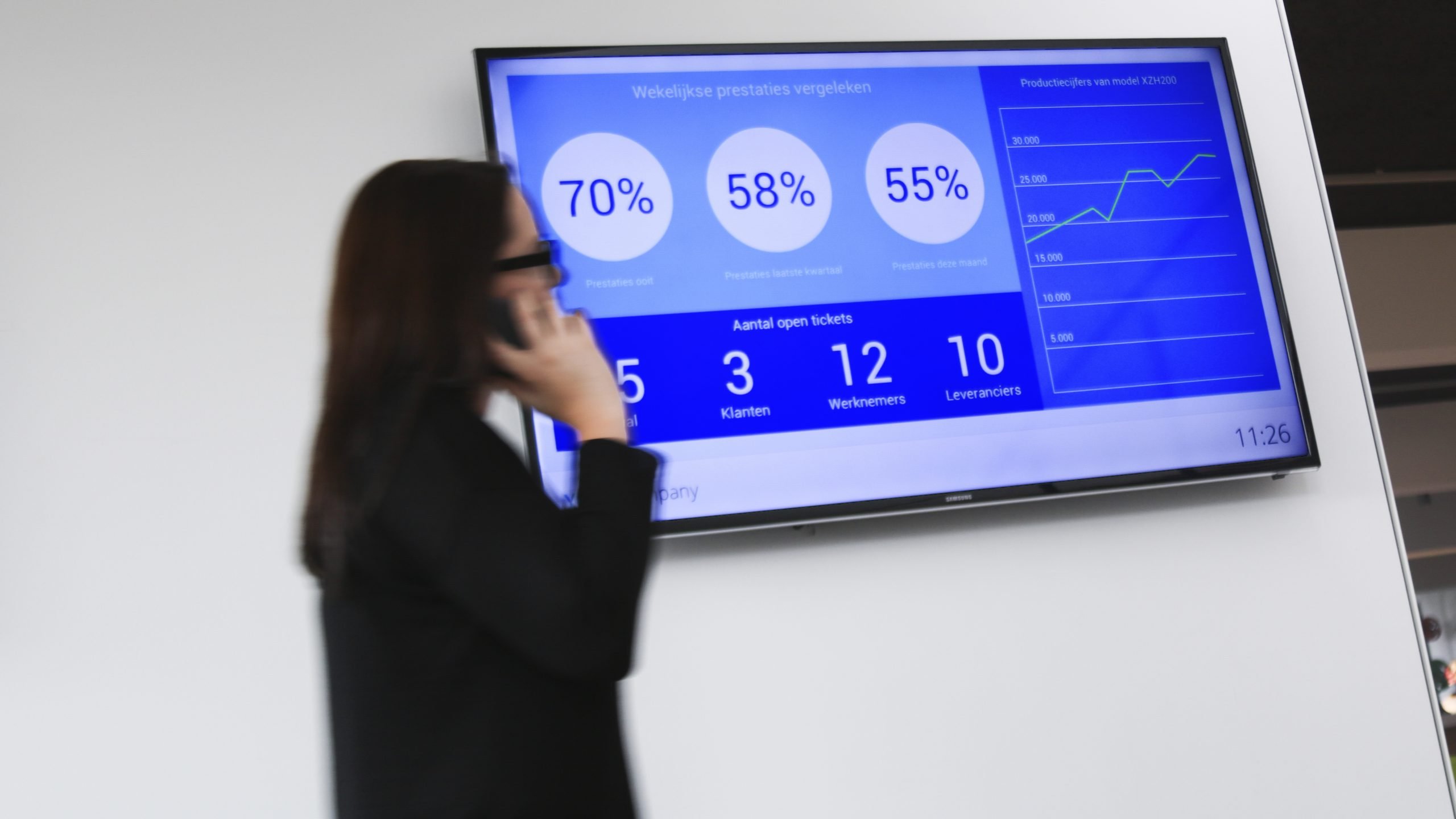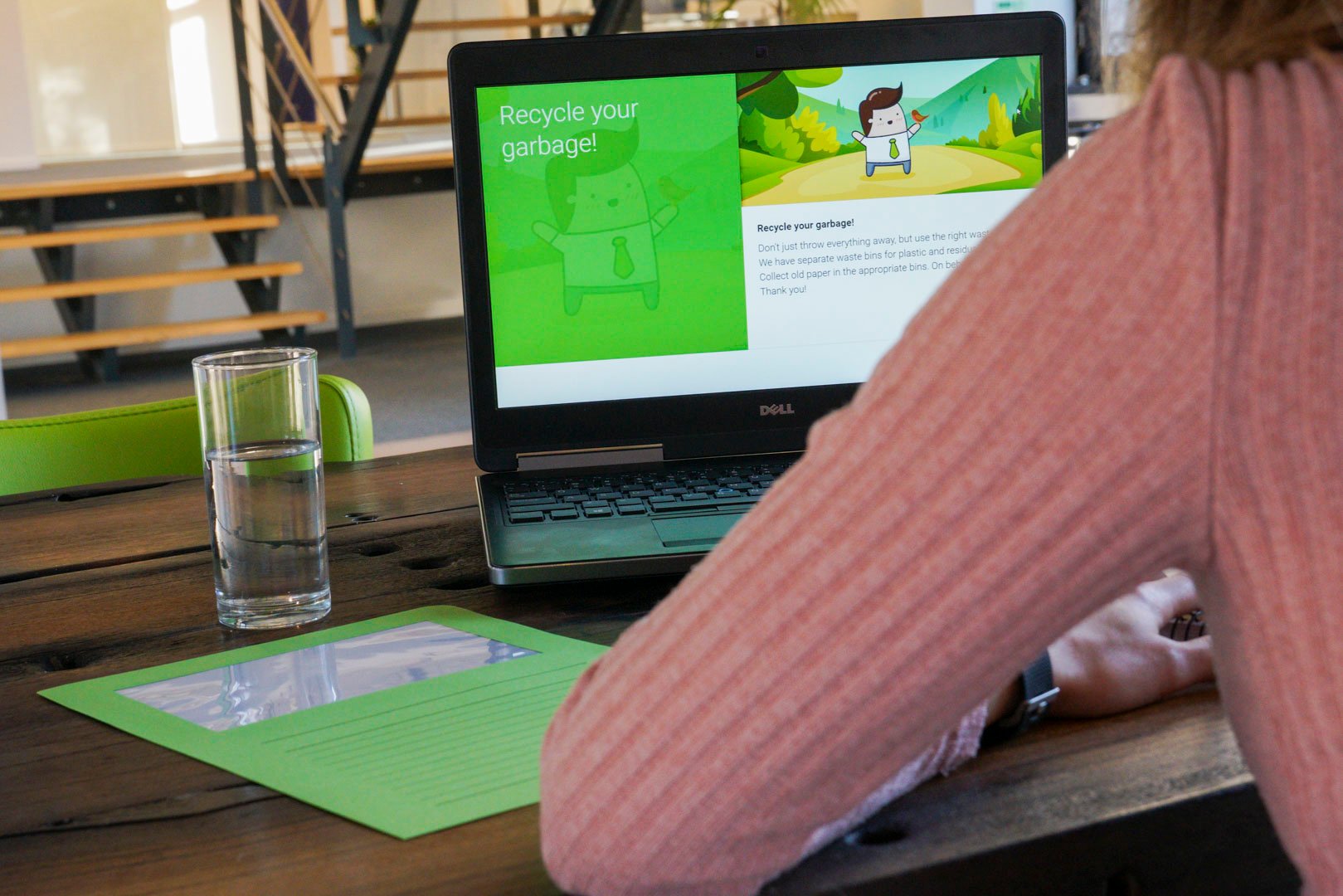Digital signage is more sustainable than you think
Estimated reading time: 4 minutes
Corporate Social Responsibility (CSR) isn’t new. Ever since the 1960s, more and more companies are taking responsibility. Modern times, however, require a modern approach. Saving energy and working paperless are logical first steps towards a ‘green’ office. Using multiple power-consuming digital signage screens therefore seems to be at odds with your green objective. Yet digital signage is more sustainable than you think.
Let’s not beat around the bush: Yes, a television consumes electricity. However, digital signage can help to make your organization more sustainable. After all, an ecological footprint is more than just your energy consumption.
Although paper, for example, can be recycled, the paper industry still has a significant impact on the environment. Cutting trees, producing paper, the plastic cartridges with toxic ink and even the large, heavy office printer (which must also be produced and transported again, consumes energy, etc.); almost every link in the paper production chain and printing is harmful to the environment. And right after paper is used – or even before in case of a misprint – it’ll probably be thrown away. Recycling paper is merely the least you can do.

Energy-efficient televisions for sustainable digital signage
Television screens, on the other hand, have become a lot more eco-friendly in recent years with the introduction of LED screens. Traditional LCD televisions use CCFL lamps, which use more power and contain harmful mercury. Because of this, in some states it is even prohibited to dispose CCFLs. Modern LED televisions might be more expensive when you buy them, but are cleaner, more energy-efficient and last longer. Modern TVs can often be programmed to turn on and off at specific times, so they don’t stay on outside office hours. Nowadays, a new screen is a lot more durable than a few years ago.
Keep in mind what you really need, though. A larger screen consumes more energy compared to a smaller model, but the size of your screens also affects whether people see your message at all. A small screen may thus seem cheaper and more durable, but if it is too small you might not benefit from it at all. If you must replace hardware after a year because it doesn’t fit your needs, it will only have an adverse effect on your ecological footprint. When purchasing a television, do not opt for a screen that is larger than necessary, but don’t go for a screen that is too small either. To compensate for the energy consumption of larger screens, you can still reduce power consumption to a minimum in other areas, for example, by choosing the extremely compact and efficient Intel Compute Stick for your digital signage.
Use hardware that you already have
Maybe you don’t need any new screens at all. With the all-in-one communication platform by Netpresenter you can also reach your employees via their PC (via the corporate screensaver and desktop alerts ) or their mobile phone. By using those channels, you’ll spread your message just as efficiently, without having to purchase new devices. Computers and devices that are already switched on, are used more efficiently with Netpresenter.
Spread a green message!
Digital signage is also an interesting way for companies committed to sustainable entrepreneurship to inform and raise awareness among staff. Studies show that ongoing training is much more effective than a one-off training. We already see a lot of companies spreading important security regulations or cyber security reports using digital signage, but a ‘green’ message can be spread in just the same way. By teaching your staff energy-saving behavior, you ultimately do more good than harm.
If you want to know more about making your business communication more sustainable or about sustainable digital signage, please do not hesitate to contact one of our employees. Or download our free infographic to get started with digital signage.


